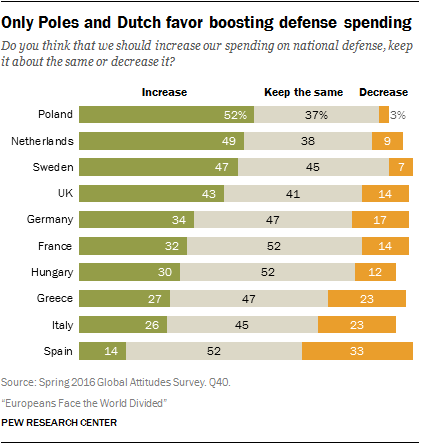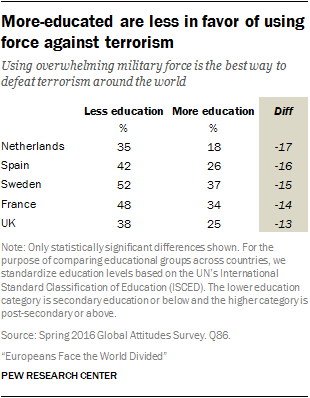Europeans overall appear reluctant to support the use of hard power in international affairs. There is little backing for boosting defense spending and, despite overwhelming concern about the threat posed by ISIS, many believe that relying too much on military force to defeat terrorism only creates hatred that can lead to more terrorism.


A reticence to exercise hard power can also be seen in the lack of public support for the use of overwhelming military force to defeat terrorism. Despite large majorities in each society who say that ISIS is a major threat to their country, half or more in six of the 10 EU nations surveyed say relying too much on military force to defeat terrorism creates hatred that leads to more terrorism. The Dutch (66%), Germans (64%) and Greeks (64%) in particular share a concern that a strong military response to terrorism will only worsen the problem. At the same time, roughly half of Poles (52%), Italians (52%) and Hungarians (51%) believe that using overwhelming military force is the best way to defeat terrorism. Swedes are divided on the issue.

As might be expected, there is a deep ideological divide on this issue. About half or more of people on the right of the ideological spectrum in Italy, Sweden, France and Spain support exercising overpowering military might. At same time, people on the left for the most part are far more concerned than those on the right that such use of force would spawn more terrorism.
Views on the efficacy of overwhelming force also differ along educational lines. Those with a secondary education or less are more likely than those with more than a secondary education to believe that the use of overwhelming force is the best way to defeat terrorism. This is particularly the case in the Netherlands, Spain, Sweden, France and the UK.